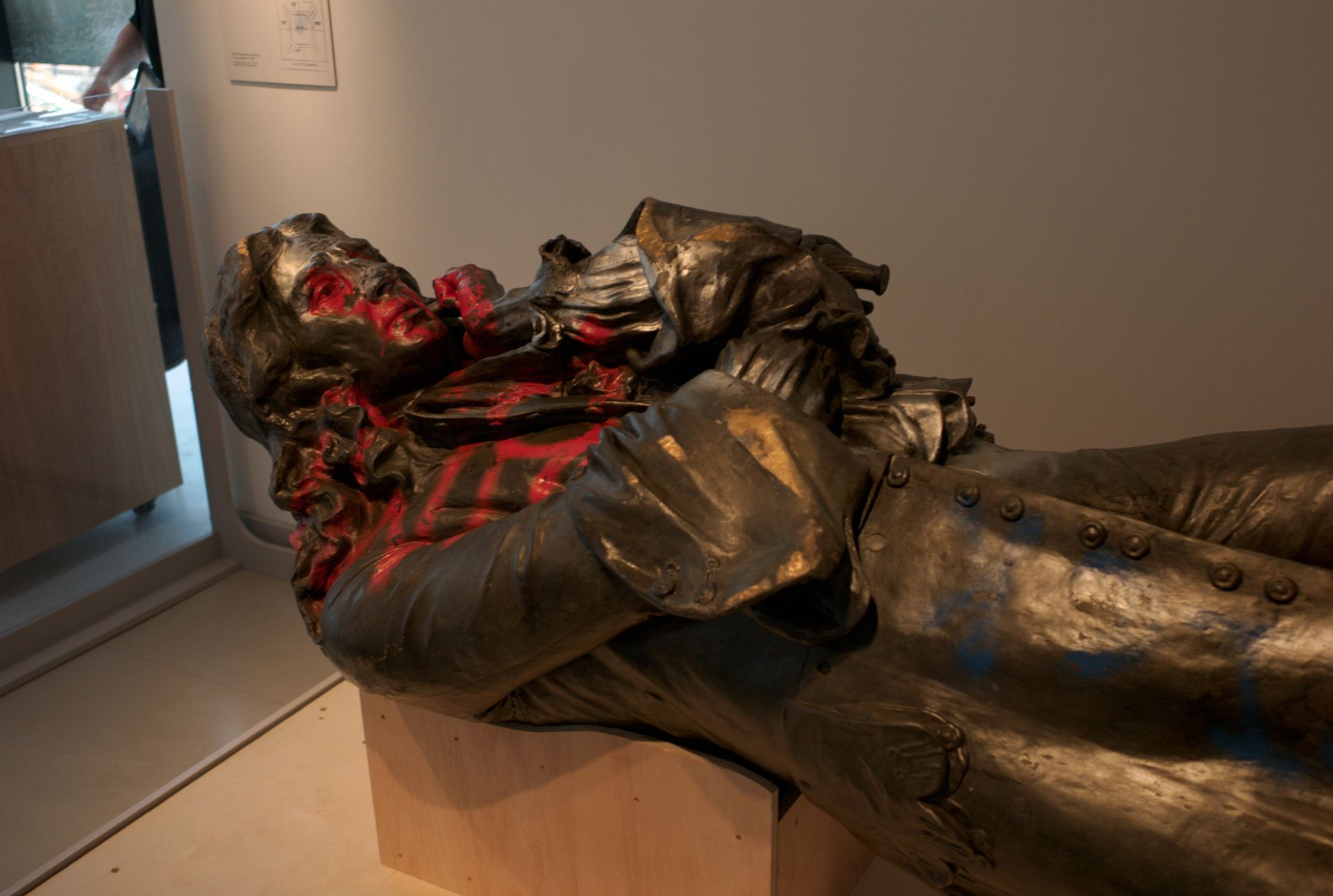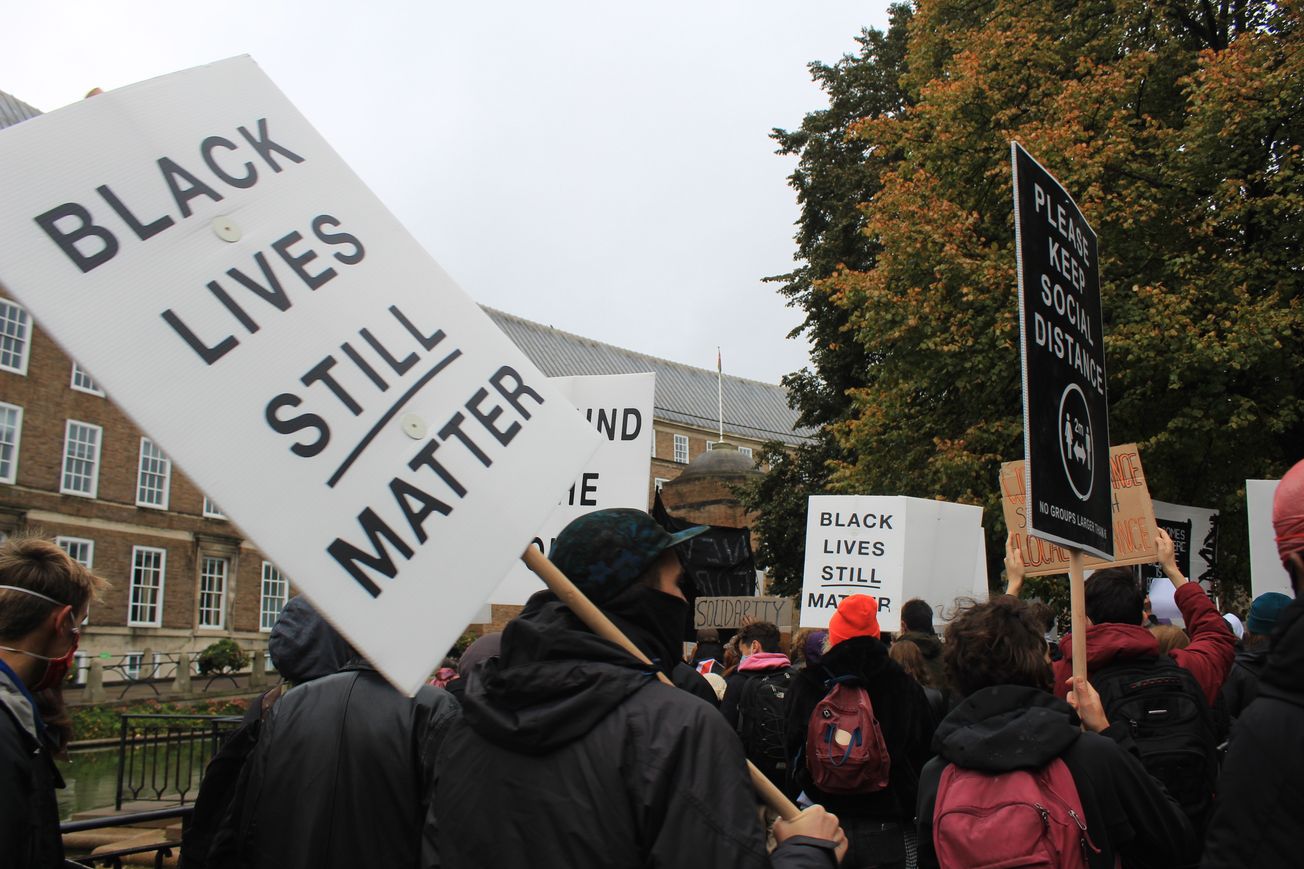By Milan Perera, Arts Critic Columnist
‘It doesn’t matter whether you call it reparation or restitution, but there should be an imperative for redressing’ proclaimed University of Bristol alumni, the Rt Hon. Lord Paul Boateng, at the much-anticipated ‘Legacies of slavery, ‘Hidden Histories’, and contemporary racism’ lecture held in the Priory Lecture Theatre in honour of Black History Month 2022.
Lord Boateng was accompanied by celebrated academic and tireless campaigner Professor Mamokgethi Phakeng—well-known for her indomitable work towards decolonising education and campaigning for better access to education—in conversation with Professor Tim Cole, Professor of Social History and Director of the Brigstow Institute at the University of Bristol. The newly appointed Vice-Chancellor, Professor Evelyn Welch welcomed the panel.
Visible symbols of colonialism and the legacies of slavery were a powerful focus of the the discussion. Professor Phakeng was appointed the Vice-Chancellor at the University of Cape Town in 2018 and has been instrumental in founding the Rhodes Must Fall Scholarship. #RhodesMustFall began as a student-led movement in 2015 at the University of Cape Town, demanding the removal of a monument to the coloniser Cecil Rhodes. Synonymous with the fight for decolonisation, students protested against the continuation of White hegemony, continued inequity, lack of access and a lack of representation of Black histories and culture in university systems.
Ayabulela Mhlahlo comments on being the first recipient of the #RhodesMustFall Scholarship. Mhlahlo’s work embodies the cardinal pillars of RMF: Black Radical Feminist, Pan Africanism, Black Consciousness & Intersectionality #RMFScholarship2022 pic.twitter.com/VjFBvSIkns
— Rhodes Must Fall (RMF) South Africa (@RhodesMustFall) September 5, 2022
The tremors of this movement were felt at universities around the world, renewing the discourse around the decolonisation of higher education. The Rhodes Must Fall Scholarship was a green shoot that sprang from this movement. The Scholarship seeks to ensure that the next generation of activists, theorists and scholars have access to financial support for postgraduate studies, enabling them to continue contributing to the diverse voices required for this process.
'The theme of Black History Month 2022 is "Time for Change: Action Not Words"'
Professor Phakeng emphasised the importance of including Rhodes’ name in the scholarship scheme—a decision that initially raised eyebrows, including those of potential benefactors. Yet she remained adamant that the coloniser’s name is an integral part of the scholarship as, in her view, the Rhodes Must Fall Scholarship is a robust intellectual response to the colonial legacy of Cecil Rhodes. She pointed out that ‘Rhodes hasn’t yet fallen. It happens only through scholarship’, and it is through this scholarship that she hopes to foster an understanding of Black Consciousness, Pan-Africanism and Black Radical Feminism.
Professor Phakeng drew further attention to the University of Bristol crest, which still bears symbols of colonialism, notably the dolphin emblem of Bristol-born merchant Edward Colston. Colston was infamously associated with the Royal African Company, which shipped 84,000 African natives into the transatlantic slave trade. Previous to the anti-racism protests of 2020, he was a celebrated benefactor of Bristol and was memorialised with monuments, buildings and roads throughout the city.

In Professor Phakeng’s view, it is grossly insufficient to be indignant about colonisation with no action plan to follow. Though the toppling of Colston’s statue was a strong symbolic gesture, decolonisation is realised through implemented action rather than gestures.
The theme of Black History Month 2022 is ‘Time for Change: Action Not Words’. In the wake of 2020’s Black Lives Matter protests, which saw individuals and institutions alike declaring their commitment to tackling racism, the aim of this Black History Month is to encourage a movement beyond short-term or performative gestures towards real, long-term action.
'racism nowadays has morphed into more sophisticated forms, more often "with a smile and a hug"'
It is impossible to fathom the histories of London or Bristol without the links to enslavement from which these cities benefited. Lord Boateng encouraged audience members to visit the Bank of England Museum during Black History Month to catch a glimpse of how the capitalist trades of rum, tobacco and sugar prospered under colonialism, propelling cities like London and Bristol towards their statuses as important economic hubs. The exploitation of the Majority World continues to this very day, and Lord Boateng welcomes Fair Trade as an important initiative towards the right direction.
Considering the lasting legacy of anti-Black symbols and contemporary forms of racism, Lord Boateng recalled a past campaign in which he participated, which raised a furore in the Daily Mail in their protest against the major anti-black caricatures ‘golliwogs’ on manufacturer Robertson’s jam jar labels. Professor Phakeng highlighted that racism nowadays has morphed into more sophisticated forms, more often ‘with a smile and a hug’. She pointed to her lived experience of competing with a White colleague for a job, highlighting that she had to ‘prove her worth’ in order to secure the job, more than was required of her colleague.
What's on in Bristol this Black History Month
Erasing Colston: how far has Bristol got left to go in disassociating from its slave trade roots?
In response to an audience member’s inquiry as to why no White academics were in attendance on the panel, Professor Phakeng pointed out the necessity for people with lived experience of racial discrimination to have the opportunity to discuss the issues that directly affect them. She welcomed individuals to be allies in the struggle, but not at the expense of disposing of those directly affected by the legacies of colonialism.
The thought-provoking discussion on legacies of slavery and decolonisation was brought to a closure with the famous words of the American Abolitionist, Frederick Douglas—as quoted by Lord Boateng, ‘Power concedes nothing without a demand’. In other words ‘No struggle, no progress’.
Featured Image: Epigram / Lucy O'Neill









